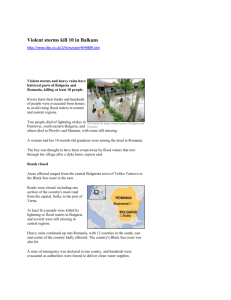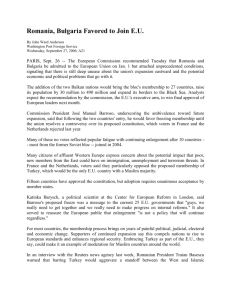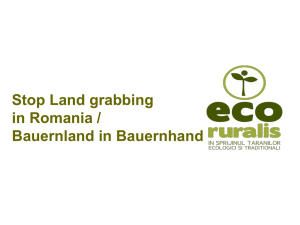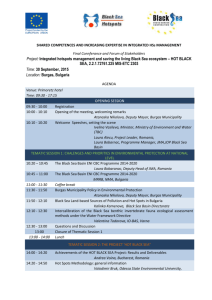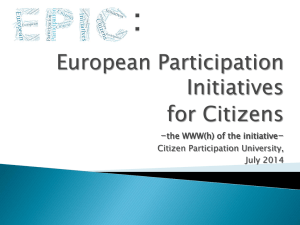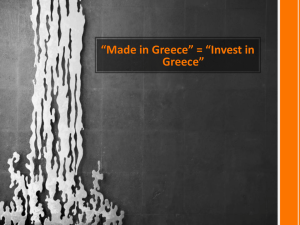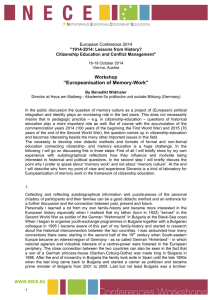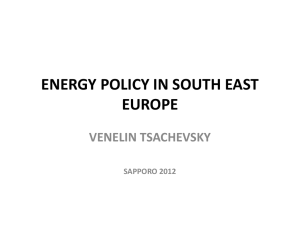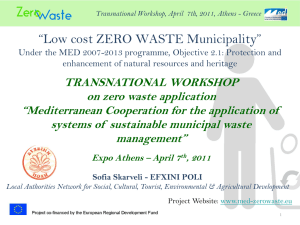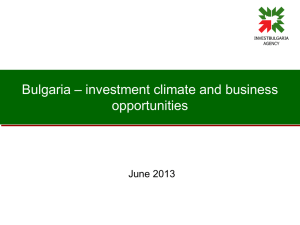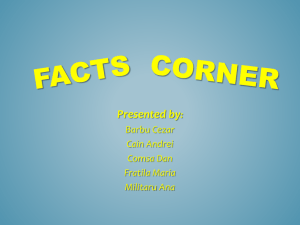Municipal Solid Waste Generation and Economic Growth Analysis
advertisement
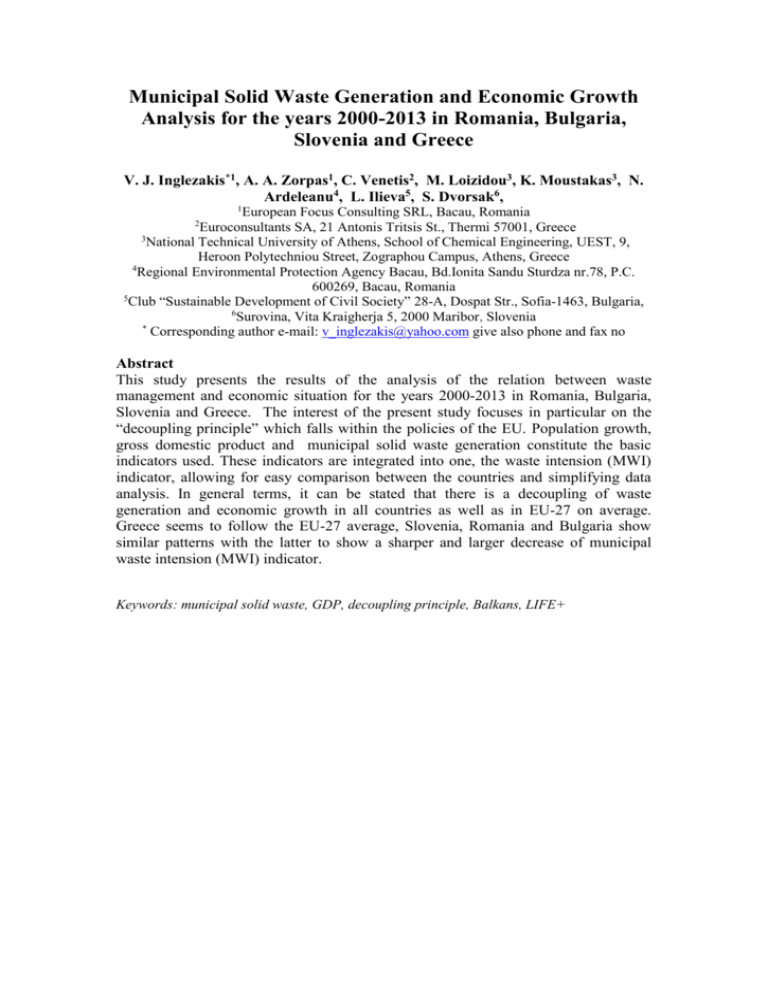
Municipal Solid Waste Generation and Economic Growth Analysis for the years 2000-2013 in Romania, Bulgaria, Slovenia and Greece V. J. Inglezakis*1, A. A. Zorpas1, C. Venetis2, M. Loizidou3, K. Moustakas3, N. Ardeleanu4, L. Ilieva5, S. Dvorsak6, 1 European Focus Consulting SRL, Bacau, Romania Euroconsultants SA, 21 Antonis Tritsis St., Thermi 57001, Greece 3 National Technical University of Athens, School of Chemical Engineering, UEST, 9, Heroon Polytechniou Street, Zographou Campus, Athens, Greece 4 Regional Environmental Protection Agency Bacau, Bd.Ionita Sandu Sturdza nr.78, P.C. 600269, Bacau, Romania 5 Club “Sustainable Development of Civil Society” 28-A, Dospat Str., Sofia-1463, Bulgaria, 6 Surovina, Vita Kraigherja 5, 2000 Maribor, Slovenia * Corresponding author e-mail: v_inglezakis@yahoo.com give also phone and fax no 2 Abstract This study presents the results of the analysis of the relation between waste management and economic situation for the years 2000-2013 in Romania, Bulgaria, Slovenia and Greece. The interest of the present study focuses in particular on the “decoupling principle” which falls within the policies of the EU. Population growth, gross domestic product and municipal solid waste generation constitute the basic indicators used. These indicators are integrated into one, the waste intension (MWI) indicator, allowing for easy comparison between the countries and simplifying data analysis. In general terms, it can be stated that there is a decoupling of waste generation and economic growth in all countries as well as in EU-27 on average. Greece seems to follow the EU-27 average, Slovenia, Romania and Bulgaria show similar patterns with the latter to show a sharper and larger decrease of municipal waste intension (MWI) indicator. Keywords: municipal solid waste, GDP, decoupling principle, Balkans, LIFE+
